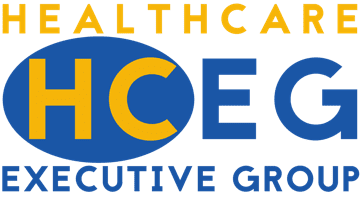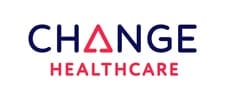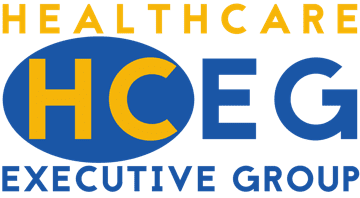
Thursday, November 15th, 2018 11:00am ET / 2:00pm PT
Market dynamics are forcing health insurers to significantly re-evaluate the way they do business, their interactions with members and providers, and the people, processes and technologies necessary to support these changes. Successful health insurers are making communications possible through multiple channels based on consumer choice, providing cost transparency and offering incentives for healthy behaviors.
This webinar will provide information from recent market studies and specific examples illustrating some of the most important considerations for health plans’ success now and in the future. The data shared will reveal how engaged digital consumers regard the services provided by health insurers and expectations as well as the level of trust held by members in the context of new disruptive entities and partnerships emerging in healthcare.
WEBINAR OUTLINE
- What are the top organizational priorities for health insurance executives?
- What are the key challenges and solutions that enable health insurers to meet those objectives?
- What are the most important expectations that members have of their health insurer?
- What is the trust level between members and health insurance organizations and how does this relate to new disruptive entities entering healthcare?
Panelist

Harry Merkin
Harry Merkin has worked with both payers and providers through many dynamic changes in healthcare. He is currently responsible for Marketing at HealthEdge, including product marketing, demand generation and thought leadership. He previously had similar responsibilities at Evariant and NaviNet and has collaborated with many transformative entities across the healthcare landscape. Harry has helped introduce and promote innovative enterprise software solutions that enable payers to improve their competitive effectiveness, as well as perform valuable communications between payers and providers. He is a frequent speaker at industry conferences and forums and contributor to the ‘Edge Report, the HealthEdge blog.
The Future of High-Value Care: Advancing Home Health as a Post-Acute Alternative
Thursday, October 4thth, 2018 at 11:00am PT / 2:00pm ET
Post-acute care comprises 20-25% of a Medicare Advantage plan’s total spend, however few have the resources and expertise to concentrate in this area. In addition, the use of home care as a safe and reliable benefit option is often misunderstood, by the patient, the caregiver, and even the physician community.
Coordinating the services needed in the home can be a challenge. Finding the right in-home care team and ensuring payment under the patient’s benefit, can be daunting.
LEARNING OBJECTIVES
- Learn how benefit plan design can promote and support care-at-home as the first choice
- Better understand the CMS Rule regarding the expanded definition of supplemental benefits and how it affects MA plans in 2019 and beyond
- Develop strategies to create better continuity of care between inpatient and home care
- Ensure the right match of services and providers to patient
- Optimize new MA benefits and add value by reducing readmissions and costs
PANELISTS

Dr. Karen Johnston
Trained as an internist at UCSF, Dr. Karen Johnston is currently Medical Director at CareCentrix. She started her career as a partner in a 50-physician multi-specialty group practice. She subsequently shifted to positions as medical director and chief medical officer at cardiovascular prevention programs ranging from academic to commercial to venture-capital backed startups. Most recently, she co-founded a self-funded start-up, eMedBracelet, an electronic personal health record. She has a passion for global health and serves on the board of Bridges to Community, a non-governmental organization working in Nicaragua and the Dominican Republic.

Dr. Michael Cantor
Dr. Cantor is a geriatrician and attorney with extensive experience in designing and implementing population health and quality improvement programs for health plans and healthcare providers. Dr. Cantor still sees hospital inpatients on weekends. He trained in internal medicine at Beth Israel Hospital in Boston, and did his geriatrics fellowship at Harvard Medical School. His degrees in law and medicine are from the University of Illinois.
The Four Pillars of a Successful Core-System Replacement Project
Thursday, August 2thth, 2018 at 11:00am PT / 2:00pm ET
Establishing a Framework for Successful Core-System implementation
As the transformation of healthcare continues to accelerate, the limitations of many legacy core systems are increasingly apparent when it comes to meeting the demands of today’s value-based environment. Faced with the need to support higher levels of provider-payer collaboration, stronger member engagement, and the design and execution of complex reimbursement models, a growing number of payers are seeking out more flexible, scalable, and data-driven systems.
Identifying the optimal replacement platform, however, represents only half the battle when it comes to transitioning mission-critical business operations. Without a similar commitment to ensuring the implementation process is effectively planned and executed, the best of intentions can quickly unravel. In a worst case, this can mean ongoing disruptions to vital business functions, deteriorating provider and member relations, out-of-control timelines, and extensive cost overruns.
We’ve organized these elements into a series of planning and execution steps that collectively fall into four categories, or what we call the four pillars of success. The pillars include:
- Implementation Readiness
- Governance
- Business Transformation
- Execution Framework
PANELISTS

Jeanne Noe PMP
Jeanne Noe is consulting director of Change Healthcare Consulting Services. She is responsible for leading system and process modernization teams for Consulting Services and has over 25 years’ experience in healthcare-related operations.

Mauricio 'MJ' Jimenez
Mauricio “M.J.” Jimenez is a senior manager with Change Healthcare Consulting Services. He specializes in IT and enterprise architecture, strategy, implementation, and integration, and has over 20 years of IT experience
The Financial Impact of Post-Acute Care in Medicare Advantage
Thursday, April 19thth, 2018 at 11:00am PT / 2:00pm ET
Many Medicare Advantage plans are beginning to recognize the need to reduce costs associated with post-acute care, particularly to optimize their Medicare bids – but most don’t have the expertise to identify the best areas for potential cost reduction. This is unfortunate, as post-acute care accounts for up to 25 percent of a Medicare Advantage plan’s total spend.
Every post-acute care journey is characterized by transitions – from hospital to a Skilled Nursing Facility (SNF), or to an Inpatient Rehabilitation Facility (IRF), or to recovery at home. At each transition, the path splits, but providers may have incomplete information at the point a decision is needed. Often, Medicare Advantage plans do not have the specialized resources to manage the complexity of the post-acute care continuum. This results in increased risk for adverse patient outcomes, waste, and additional costs.
Participants will learn how to:
- Identify the 3 key areas that can drive down post-acute care costs and lower Medicare bids
- Choose the right metrics for cost-savings analyses and benchmarks for comparison
- Understand the roles that Home Health and DME play in reducing readmissions
PANELISTS

Dr. Karen Johnston
Trained as an internist at UCSF, Dr. Karen Johnston is currently Medical Director at CareCentrix. She started her career as a partner in a 50-physician multi-specialty group practice. She subsequently shifted to positions as medical director and chief medical officer at cardiovascular prevention programs ranging from academic to commercial to venture-capital backed startups. Most recently, she co-founded a self-funded start-up, eMedBracelet, an electronic personal health record. She has a passion for global health and serves on the board of Bridges to Community, a non-governmental organization working in Nicaragua and the Dominican Republic.

Marcus Lanznar
Marcus Lanznar is VP of Market Development and Strategy at CareCentrix, the leader in post-acute management. He is responsible for product strategy and growth initiatives at CareCentrix. Marcus also has significant experience as a consultant in the healthcare space across pharm, biotech and healthcare services.
Value-Based Payments Getting from here to there…
Thursday, March 22th, 2018 at 11:00am PT / 2:00pm ET
Paying for value continues to gain momentum in the industry and presents significant challenges, as well as interesting opportunities for health plans. With the growing acceptance of value-based payments, health plans and providers must transition from the traditional fee-for-service model in order to drive down soaring costs and positively impact patient outcomes.
With this transition, there are many obstacles to successfully implement value-based payments models. Developing the capabilities to effectively respond to change doesn’t happen overnight. Health plans must have flexibility to develop, implement and administer the contracts that reward providers for positive performance and encourage poor performers to improve. Join Independent Health and HealthEdge as they discuss how successful value-based arrangements are based on the real-time exchange of information and shared goals between health plans and providers.
The move to value-based reimbursement is inevitable, and only those health plans that adapt will be successful in the future. Hear directly from Independent Health what the essential elements are for the necessary transition. Attendance is complimentary, but registration is required. Secure your seat and register for “Value-Based Payments – Getting from here to there…” today!
PANELISTS

Harry Merkin
Harry Merkin has worked with both payers and providers through many dynamic changes in healthcare for a number of years. He is currently responsible for Marketing at HealthEdge, including product marketing, demand generation and thought leadership. He previously had similar responsibilities at Evariant and NaviNet and has collaborated with many transformative entities across the healthcare landscape. Harry has helped introduce and promote innovative enterprise software solutions that enable payers to improve their competitive effectiveness, as well as perform valuable communications between payers and providers, and allow providers to effectively collaborate with patients and consumers as well as with each other

Dave Mika
Dave Mika plays an integral role in leading the operations unit at Independent Health, located in Buffalo, NY. He is responsible for the coordination of activities across the organization to more effectively manage workloads and partner closely with individual business unit owners to achieve operational excellence. A former Army Reserve combat medic and Licensed Practical Nurse with more than 30 years of experience in the health insurance industry, Mika has also held management positions in member appeals, provider relations, project management and product development and implementation.
 The 2018 HCEG Top 10 – Healthcare Opportunities, Challenges & Issues
The 2018 HCEG Top 10 – Healthcare Opportunities, Challenges & Issues
Thursday, January 25th, 2018 at 11:00am PT / 2:00pm ET
The HCEG Top 10 has been a pillar of the Healthcare Executive Group for over 10 years, providing extensive insight into primary opportunities, challenges and issues currently facing healthcare executives in the United States.
Created with member input gathered from HCEG members during the month’s leading up to HCEG’s Annual Forum, and ranked during several iterations of voting during the Annual Forum, the HCEG Top 10 encourages continuous and evolving dialog on the main issues and concerns facing member organizations.

Watch the recorded webinar below:
PANELISTS

Kim Sinclair
Ms. Sinclair, who has been with BMC HealthNet Plan since 2002, is responsible for providing leadership and strategic direction for the organization’s Information Technology division. She represents the Plan in government and industry IT forums in which healthcare related topics are discussed and strategies defined. She is a key contributor to implementing and managing Medicaid and government programs, including national healthcare reform under the Affordable Care Act. Ms. Sinclair earned a master’s degree in business administration from Curry College and a bachelor’s degree from Providence College.

Ferris Taylor
Ferris Taylor was recently chosen as the Executive Director of the Health Care Executive Group (HCEG), where he has served on the board for 14 years. HCEG is a national network of select executives from across healthcare coming together to continually learn, grow, share and reshape the industry. Taylor until recently was Chief Strategy and Chief Operating Officer at Arches Health Plan, a non-profit member-governed health insurance company that had been providing health plan options to 80,000 individual and group members throughout Utah. Unfortunately, Arches is one of the many CO-OPs who are being shut down by CMS and he is working as a consultant to wind down the Arches operations. Taylor brings more than 40 years of business leadership including 30 years in health care, technology and consulting services to his executive roles. Prior to Arches, he founded Pragmatic Health Care Solutions, a health care strategy and market positioning firm. From 2003 to 2008, he was VP of Strategic Marketing and Payer Market Strategy for Ingenix (now Optum), one of the industry’s largest health information technology companies and part of UnitedHealth Group. Additionally, Taylor served 12 years as the head of Marketing and Information Services for Harvard Pilgrim Health Care and 2 years as Vice President of Marketing and Planning for North Shore Medical Center, the six community hospital system of Partners Healthcare that includes Mass General and Brigham and Women’s Hospitals. A graduate of Brigham Young University in Nuclear Physics with a minor in Spanish, Taylor holds an MBA with an emphasis in finance and quantitative economics. He is also a graduate of the GHAA/AHIP Executive Program in Managed Care from the University of Missouri.

David V. Gallegos
David Gallegos is a results oriented healthcare executive with over twenty (20) years of Health Information Technology (HIT) experience. His experience spans working for a state-wide Medicaid fiscal agents to a national commercial managed care company; from a 3-hospital delivery system to a 250-physician group practice. Mr. Gallegos has extensive experience implementing a wide variety of technologies in a broad range of settings, using innovative solutions to solve complex business problems. These implementations include but are not limited to: Medicaid Management Information Systems (MMIS); health plan information systems; hospital information systems; electronic medical records; e-business applications; customer relationship management; member and provider engagement portals; business process automation systems; and business intelligence solutions. Mr. Gallegos has experience in integrating merged companies, start-up and turnaround operations, and helped in the implementation of multiple Medicaid carve-outs. And he has managed I.T. organizations with an excess of 100 individuals and budgets of over $20 million.




 The 2018 HCEG Top 10 – Healthcare Opportunities, Challenges & Issues
The 2018 HCEG Top 10 – Healthcare Opportunities, Challenges & Issues

